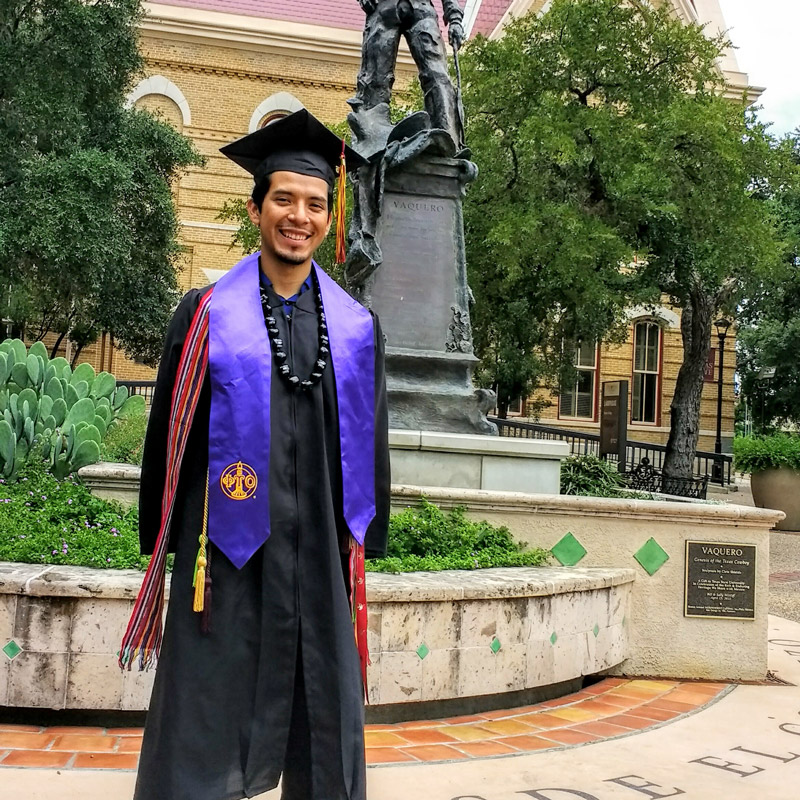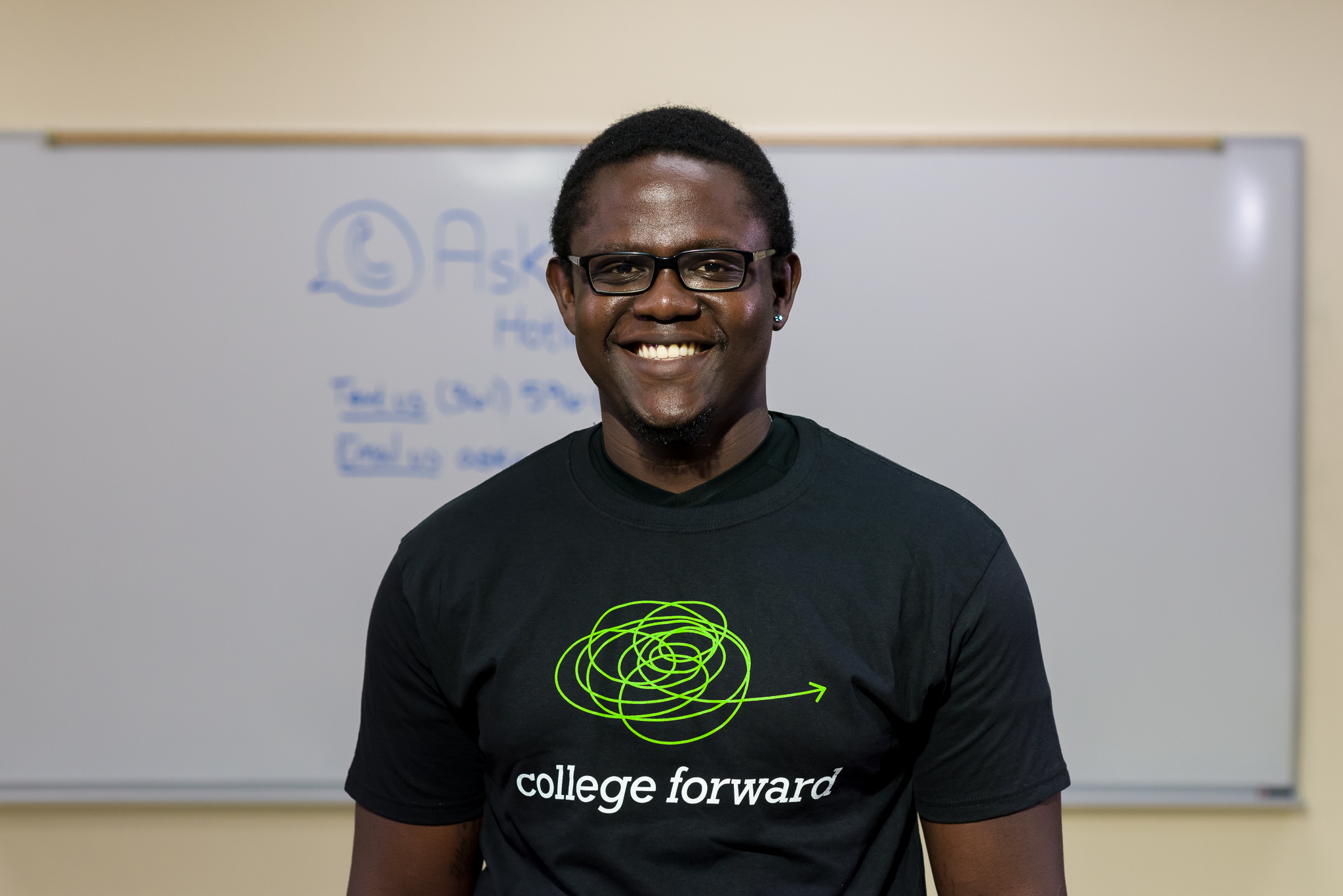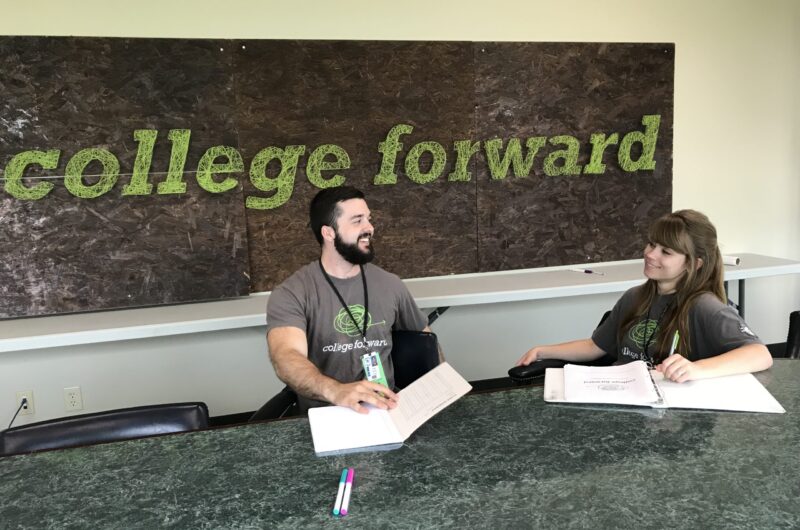Pursuing education beyond high school is an investment in your future. Many students throughout the country wonder if college is worth it. They are exploring the many different paths available, weighing the costs of college compared to entering the job market, or wondering what changes COVID-19 brought. Even now, perhaps especially now, investing your energy, time, and money in earning a degree or certification is a worthy endeavor. But don’t just take our word for it. Explore these findings to learn more about the value of education and training beyond high school.

“Education continues to shape my life in various ways. The outcomes of pursuing higher education impact me on a daily basis. This is why I value my education and believe it’s a very important goal to pursue.”
Juan, UT Austin, ’17
Higher education pays
In Education Pays: The Benefits of Higher Education for Individuals and Society, College Board researchers document the significant benefits of pursuing a postsecondary degree, both for individual students and their communities.
We use the term “postsecondary” as an umbrella term to refer to any education or training beyond a high school diploma. Postsecondary education includes certificate programs, technical colleges, two-year community colleges, and four-year colleges and universities.
In 2021, median earnings of bachelor’s degree recipients age 25 and older with no advanced degree working full time were $29,000 (65%) higher than those of high school graduates.
While there are examples of competitive and gainful employment without needing a bachelor’s degree, we know that, on average, workers with a bachelor’s degree earn $2.8 million over their lifetime—75% more than if they had only finished high school (Chronicle Higher Ed, 2022).
Researchers also found that for all household types, the poverty rate falls as the level of education increases. The 2021 poverty rate for individuals with a bachelor’s degree was four percent, compared with 13 percent for high school graduates with no college experience. But the benefits of a postsecondary degree don’t stop there. The unemployment rate for individuals age 25 and older with at least a bachelor’s degree has consistently been half that of those with only a high school diploma. Lastly, among both full-time and part-time workers, those with higher levels of educational attainment are more likely than others to be covered by employer-provided health insurance.
“It is okay to start your journey at a community college. Community colleges are cheap, convenient, and offer more/if not better student aid in terms of transportation, child care, and student life.”

Bryan, Huston-Tillotson University, ’22
After the recession in 2008, ninety-nine percent of the ll.6 million new jobs went to workers who had some form of higher education. Furthermore, in the 2020 recession, the unemployment rate of workers aged 22-27 without bachelor’s degrees was 21% vs. just 8% of those with bachelor’s degrees (Chronicle Higher Ed, 2022).
This research proves that earning a degree beyond a high school diploma is a sound financial investment in your future. Individuals who earn an associate’s or bachelor’s degree can expect to earn higher salaries than their peers with high school diplomas. Postsecondary degree holders also enjoy higher rates of employment and health insurance coverage.
In addition, the value of earning a postsecondary degree encompasses much more than finances, employment, and health.
- College is a place to explore your full potential. Take classes on a variety of new topics, or take a deep dive into your favorite subjects. Experience clubs, organizations, communities, and sports that you may not have an opportunity to participate in otherwise.
- College is challenging, but because of that, we experience growth. Earning a degree is difficult; it is a multi-year journey that can be full of successes and failures, but it’s difficulty is what allows for growth.
- Be inspired. During your college journey you will likely meet people from a myriad of backgrounds, cultures, and experiences, each with a unique story. You can discover new passions, interests, or ways of experiencing your world.
- College is very different from your education so far. Many students find that their studies in college are more focused on their passions, directly applicable to the workplace, and allow for more flexibility and independence. Comparing your experience in high school to what you expect from college, or a certificate program isn’t always an accurate comparison.
- Earning a postsecondary degree is also an investment in your family. Once one family member knows how to navigate the world of higher education, they can share that knowledge with other family members. College graduates are also more likely to have children who also graduate from college and attain higher-salary careers.
“From the time I could walk and talk, my parents constantly reminded me that my only inheritance would be my college education. That my degree would be my “machete,” allowing me to one day use my degree to provide for my family and be someone in the world.”




